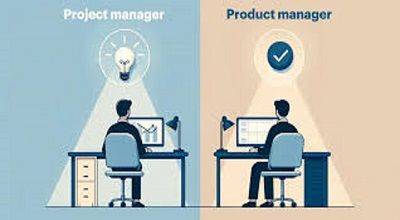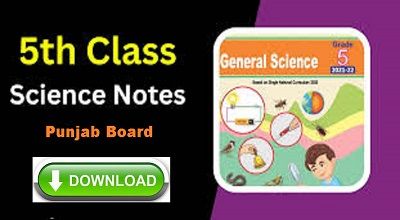Study Tips for High School Students
Study Tips for High School Students: 2024 Edition: High school can be a challenging time for students as they balance academics, extracurricular activities, and social life. With the right strategies, students can enhance their learning efficiency, reduce stress, and achieve their academic goals. Here are the latest study tips for high school students in 2024.
1. Understand Your Learning Style
Identify Your Preferred Learning Method
Every student has a unique learning style. Some are visual learners, others are auditory, and some learn best through kinesthetic (hands-on) activities. Identifying your preferred learning method can help you choose the most effective study techniques.
Tailor Study Techniques to Your Learning Style
Once you know your learning style, tailor your study methods accordingly. For visual learners, mind maps and color-coded notes can be very helpful. Auditory learners might benefit from recording lectures or using mnemonic devices. Kinesthetic learners should try hands-on activities or study in short bursts, with physical activity in between.
2. Set Clear Goals and Objectives
Short-Term and Long-Term Goals
Setting both short-term and long-term academic goals can provide direction and motivation. Short-term goals might include completing daily homework or preparing for a quiz, while long-term goals could involve achieving a certain GPA or excelling in a particular subject.
SMART Goals
Ensure your goals are Specific, Measurable, Achievable, Relevant, and Time-bound (SMART). For example, instead of setting a vague goal like “do better in math,” aim for “increase my math grade by one letter grade by the end of the semester by studying for an hour daily.”
3. Create a Study Schedule
Consistent Study Routine
A consistent study routine helps reinforce learning. Allocate specific times for studying each day and stick to this schedule. This consistency helps in creating a habit, making it easier to manage time and reduce procrastination.
Breaks and Downtime
Include breaks and downtime in your study schedule. The Pomodoro Technique, which involves studying for 25 minutes followed by a 5-minute break, can be very effective. Longer breaks should be scheduled after longer study sessions.
4. Effective Note-Taking
Structured Notes
Adopt a structured note-taking method such as the Cornell Method or the Outline Method. Structured notes help in better organization and retention of information.
Summarize and Review
Summarize your notes at the end of each study session and review them regularly. This helps reinforce the material and makes it easier to recall during exams.
5. Utilize Technology Wisely
Educational Apps and Tools
There are numerous educational apps and tools designed to aid learning. Apps like Quizlet, Khan Academy, and Duolingo can provide interactive and engaging ways to study various subjects.
Limit Distractions
While technology can be a great aid, it can also be a significant distraction. Use apps like Forest or StayFocusd to limit your time on non-educational sites and keep your focus on studying.
6. Active Learning Techniques
Engage with the Material
Active learning involves engaging with the material rather than passively reading or listening. Techniques such as summarizing information in your own words, teaching the material to someone else, or participating in group discussions can enhance understanding and retention.
Practice Testing
Regularly test yourself on the material. This can be through practice exams, flashcards, or online quizzes. Practice testing not only helps in retaining information but also reduces exam anxiety.
7. Manage Stress and Maintain Well-being
Mindfulness and Relaxation Techniques
High school can be stressful, but managing stress is crucial for academic success. Practice mindfulness and relaxation techniques such as meditation, deep breathing exercises, or yoga to help manage stress.
Healthy Lifestyle Choices
Maintain a healthy lifestyle by eating nutritious foods, getting regular exercise, and ensuring adequate sleep. A healthy body supports a healthy mind, improving overall cognitive function and concentration.
8. Seek Help When Needed
Tutoring and Peer Support
Don’t hesitate to seek help if you’re struggling with a particular subject. Utilize tutoring services, whether through your school or online. Peer study groups can also provide support and enhance learning through collaborative study.
Communicate with Teachers
Build a good relationship with your teachers and communicate openly about any difficulties you are facing. Teachers can offer valuable insights, additional resources, or alternative explanations that can aid in understanding the material better.
9. Improve Reading and Comprehension Skills
Active Reading Strategies
Improve reading comprehension by using active reading strategies. Preview the text before reading, highlight key points, and summarize each section in your own words. This helps in better understanding and retention of the material.
Skimming and Scanning
Learn to skim and scan texts for key information. Skimming involves reading quickly to get a general idea of the content, while scanning involves looking for specific information. Both techniques can save time and improve efficiency when studying.
10. Enhance Memory Retention
Mnemonic Devices
Use mnemonic devices to enhance memory retention. These can include acronyms, rhymes, or associations that make it easier to remember information.
Spaced Repetition
Implement spaced repetition, a technique that involves reviewing material at increasing intervals. This method is highly effective for long-term retention of information.
11. Develop Critical Thinking Skills
Analyze and Evaluate
Develop critical thinking skills by analyzing and evaluating the information you study. Ask questions such as “Why is this important?” and “How does this relate to what I already know?” This deeper level of thinking enhances understanding and retention.
Solve Problems Creatively
Encourage creative problem-solving by tackling challenging problems in different ways. This not only improves critical thinking skills but also prepares you for complex questions on exams.
12. Prepare for Exams Strategically
Exam-Specific Study Plans
Create specific study plans for each exam. Break down the material into manageable sections and allocate time for each section. Prioritize topics based on their difficulty level and importance.
Practice Under Exam Conditions
Simulate exam conditions by practicing with timed tests in a quiet environment. This helps in managing time effectively during the actual exam and reduces anxiety.
13. Stay Motivated
Reward Yourself
Set up a reward system to stay motivated. Rewards can be simple, such as taking a break to watch a favorite show after completing a study session or treating yourself to a favorite snack.
Stay Positive
Maintain a positive attitude towards studying and learning. Celebrate small achievements and progress, and don’t be too hard on yourself for setbacks. A positive mindset can significantly enhance motivation and performance.
14. Utilize School Resources
Libraries and Study Centers
Take advantage of school resources like libraries and study centers. These environments are conducive to focused study and often provide access to additional learning materials and support services.
Extracurricular Activities
Participate in extracurricular activities that interest you. These activities can provide a well-rounded education, relieve stress, and improve time management skills.
15. Balance Academic and Personal Life
Time Management Skills
Develop strong time management skills to balance academics and personal life. Prioritize tasks, set realistic deadlines, and avoid overcommitting to activities.
Personal Time and Relaxation
Ensure you have time for personal activities and relaxation. Hobbies, social activities, and downtime are essential for maintaining overall well-being and preventing burnout.
16. Develop Good Study Habits
Consistent Study Environment
Create a consistent and conducive study environment. Choose a quiet, well-lit space free from distractions where you can focus on your work.
Organized Materials
Keep your study materials organized. Use folders, binders, or digital tools to keep track of notes, assignments, and study resources. An organized space can improve focus and efficiency.
17. Engage in Peer Learning
Study Groups
Join or form study groups with classmates. Group study sessions can provide different perspectives, enhance understanding through discussion, and make studying more enjoyable.
Peer Teaching
Engage in peer teaching, where you explain concepts to your peers. Teaching others is one of the most effective ways to solidify your understanding of a subject.
18. Adapt to Changes
Flexible Study Plans
Be adaptable and flexible with your study plans. Unexpected events or changes in your schedule may occur, and being able to adjust your plans accordingly will help you stay on track.
Embrace Online Learning
With the increasing integration of technology in education, embrace online learning platforms and resources. These can provide supplementary material and flexible learning opportunities.
19. Utilize Feedback
Constructive Criticism
Embrace constructive criticism from teachers and peers. Use feedback to identify areas of improvement and adjust your study strategies accordingly.
Self-Assessment
Regularly assess your progress and reflect on your learning methods. Self-assessment helps in recognizing strengths and weaknesses, allowing you to make informed adjustments to your study habits.
20. Stay Updated
Current Events and Trends
Stay informed about current events and trends related to your subjects. This can provide context and relevance to your studies, making the material more engaging and easier to understand.
Continuous Learning
Adopt a mindset of continuous learning. Education doesn’t stop at the classroom; seek out additional resources, attend workshops, and stay curious about the world around you.
FAQs – Study Tips for High School Students
1. How can I improve my focus while studying?
Improving focus while studying involves several strategies:
- Create a Dedicated Study Space: Choose a quiet, well-lit area free from distractions.
- Set Specific Goals: Break your study sessions into manageable tasks with clear objectives.
- Use the Pomodoro Technique: Study for 25 minutes, then take a 5-minute break. Repeat.
- Limit Distractions: Turn off notifications on your devices or use apps like Forest to stay focused.
- Stay Organized: Keep your study materials and environment tidy to avoid unnecessary distractions.
2. How do I manage my time effectively for studying?
Effective time management is key to successful studying:
- Create a Study Schedule: Allocate specific times for studying each day and stick to it.
- Prioritize Tasks: Focus on the most important and challenging subjects first.
- Set Deadlines: Establish deadlines for each task to stay on track.
- Break Tasks into Smaller Steps: Divide larger tasks into smaller, more manageable pieces.
- Use a Planner or Digital Calendar: Keep track of assignments, tests, and other commitments to plan your study sessions effectively.
3. What are the best study techniques for retaining information?
Several techniques can help you retain information more effectively:
- Active Learning: Engage with the material through summarizing, teaching, or discussing it.
- Practice Testing: Regularly test yourself on the material using flashcards, quizzes, or practice exams.
- Spaced Repetition: Review the material at increasing intervals to enhance long-term retention.
- Mnemonics: Use acronyms, rhymes, or associations to remember information more easily.
- Visual Aids: Create mind maps, diagrams, or charts to visualize the information.
4. How can I reduce stress and stay motivated while studying?
Managing stress and maintaining motivation are crucial for effective studying:
- Practice Mindfulness and Relaxation Techniques: Meditation, deep breathing exercises, or yoga can help reduce stress.
- Stay Active: Regular exercise can improve mood and cognitive function.
- Set Realistic Goals: Achievable goals provide motivation and a sense of accomplishment.
- Reward Yourself: Treat yourself after completing study sessions to stay motivated.
- Stay Positive: Focus on your progress and maintain a positive attitude towards your studies.
5. How do I balance academics with extracurricular activities and personal life?
Balancing academics with other activities requires good time management and prioritization:
- Develop a Flexible Schedule: Allocate time for academics, extracurricular activities, and personal life, adjusting as needed.
- Set Priorities: Identify what is most important and focus on those areas first.
- Avoid Overcommitting: Be realistic about how much you can handle without becoming overwhelmed.
- Make Time for Relaxation: Ensure you have downtime to relax and recharge.
- Communicate: Let teachers, coaches, and family members know if you need help balancing your commitments.
6. What resources can help me study more effectively?
Utilizing various resources can enhance your study effectiveness:
- Educational Apps and Tools: Use apps like Quizlet, Khan Academy, and Duolingo for interactive learning.
- Online Learning Platforms: Websites such as Coursera, edX, and Udemy offer courses on a wide range of subjects.
- Library and Study Centers: Take advantage of school libraries and study centers for a quiet place to study and access additional resources.
- Tutoring Services: Seek help from tutors or peer study groups for subjects you find challenging.
- Teachers and Counselors: Don’t hesitate to ask teachers for additional resources or guidance on study strategies.
Conclusion
Study Tips for High School Students: In conclusion, high school students can greatly benefit from implementing these study tips in 2024. By understanding their learning styles, setting clear goals, creating effective study schedules, utilizing technology wisely, and maintaining a healthy balance between academics and personal life, students can achieve academic success while enjoying a well-rounded high school experience.





